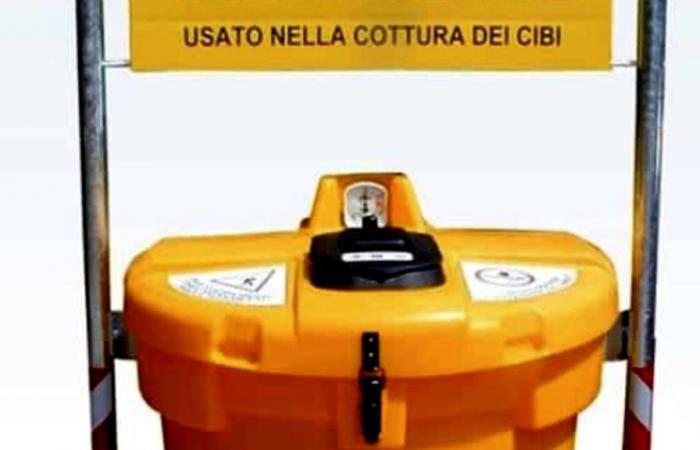Emilia Romagna is in third place in Italy for the recovery of used cooking oils and fats. This is what emerges from the data collected by RenOils, a consortium that currently brings together more than 250 trade associations and companies and whose mission is to increase and make more efficient the collection of used vegetable and animal cooking oils and fats in Italy and guarantee their correct management to safeguard the environment. The data referring to 2023 show not only the overall national increase in collection and collection points (58.5 million kilos in 61,387 collection points), but also the valuable work carried out in the territories.
In Emilia-Romagna, the third largest region in Italy, the total collection was 6,059,744 kilos at 6,678 collection points. In Parma a significant increase (165,961 kg, +19% compared to the previous year)Reggio Emilia (481,609 kilos, +31%) and Forlì-Cesena (2,463,691 kilos) also stand out. RenOils relies on a widespread network of operating partners, consisting of 34 companies involved in the collection and 18 regeneration plants. Among the objectives of the Consortium, there is also greater awareness among families: to date, in fact, the total amount of waste recovered in homes represents 32% of the total, the remainder from commercial activities, canteens and other catering sectors.
“For this reason, we have intensified relations with the Municipalities in order to facilitate and increase separate waste collection – explains Ennio Fano, president of RenOils -. The response of citizens in the villages and smaller territories is always very positive so we will continue to implement further awareness-raising actions to maximize separate waste collection. In 2023, the activity of the RenOils Consortium has grown and we have increased the overall collection, as always I would like to thank all the consortium operators for the effective collaboration, fundamental for the success”.
Used oil in the kitchen? If it ends up in the sink it pollutes the water
To this day, many Italians still throw used oil into the sink at home, but it is a bad habit. The oil used for cooking and frying, as well as the oil present in preserved foods, is not biodegradable and must be disposed of correctly. When it is thrown down the sink it ends up in the city’s sewage outlets, altering the correct water purification and the efficiency of the purifiers with a consequent increase in the management and maintenance costs of the systems.
According to a study conducted by Cnr-Utilitalia and commissioned by RenOils, the quantities of waste oils and fats of domestic origin that are dispersed into the environment following mismanagement represent 60,000/70,000 tonnes per year. If, however, used oils are poured onto the soil they make the earth impervious to the intake of nutrients and therefore sterile. Correctly managing used vegetable and animal oils and fats represents an opportunity for the environment and an economic value.
Environmental benefits
Net of transport, the saving of greenhouse gases is equal to approximately 2.4 tonnes for each tonne of waste collected and not dispersed into the environment. RenOils has reduced carbon dioxide emissions into the atmosphere by approximately 140,000 tons. Let’s not forget that the waste represented by exhausted vegetable and animal oils and fats is treated for the production of biodiesel, lubricants, raw materials for detergents with a significant reduction in the import of raw materials (relevant in a period of global crisis exacerbated by the Russian conflict -Ukrainian) and consequent benefits in environmental and industrial terms.



